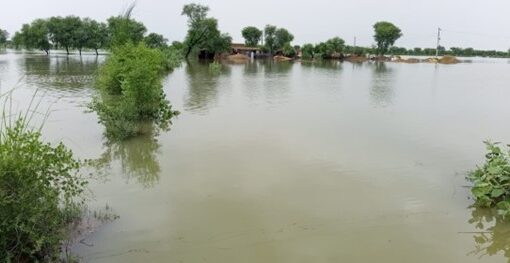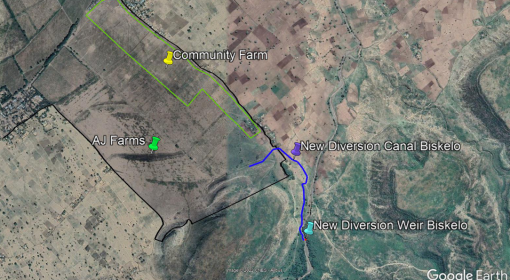Authors: Guta Eshata & Femke van Woesik
In Soke Bokicha Kebele, Middle Awash, Ethiopia, the persistent absence of rainfall, even during the supposed rainy season, presents significant challenges for local communities and farmers. Their struggle to produce enough food for sustenance forced them to seek additional support to feed their families. With rainfed agriculture proving futile, the need for irrigation is high. However, the water availability in the area is low. Besides the lack of rain, another reason for the water scarcity is the high flood flows from the Biskelo River during the rainy season. Its flood flow transports substantial sediment from upstream to downstream, rendering the river dry after November. This scenario makes it impossible for the community to gather water for irrigation, livestock, and domestic use. To address this issue and increase water availability, the Green Future Farming (GFF) project proposed two interventions: tree plantation in the upper stream to mitigate erosion and the construction of Gabion Dams to regulate the flood flow and trap sediment.
The first step involved assessing the suitable locations and collecting GPS points for dam construction. Through collaboration between the community, GFF partners, and the Africa Juice company, two Gabion Dams were constructed. Community members played a vital role in collecting the required stones, supported by local agricultural and administrative offices (Jeju Woreda Agricultural Office and Soke Bokicha Administration office). Africa Juice provided financial and workforce support for the construction.

Soon after constructing two Gabion Dams, the area was exposed to security issues and further planned interventions had to be suspended. Luckily, the interventions that could be finalized had already positively impacted the local community. The two Gabion Check Dams effectively slowed down the flood flow and trapped sediments, ensuring a year-round consistent water supply for the community.
This was an absolute game changer for the community as irrigation became available throughout the year. With the implementation of pump irrigation systems along the Biskelo River, 15 farmers can cultivate crops such as Teff and Maize. Also, the need for extensive travel to fetch drinking water was eliminated. This highlights the great impact a few targeted interventions can have on improving the daily lives of communities.





